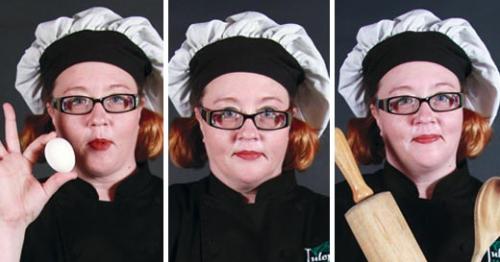My friend Dale was in a quandary the other morning. Although sick with a summer cold, he was scheduled for a shift at the independently-owned restaurant where he works.
Those of us who are certified in health regulations by the local authorities know we are not supposed to work food in service when we are sick. Our managers know this, as well, along with our fellow employees. If you’re from the corporate world, the solution is easy. “Just call in sick! Don’t risk infecting a guest or a co-worker. Just stay home and get better. See you tomorrow!”
Unfortunately, it’s not that simple.
Independent-restaurant workers don’t have the luxury of paid time off. Not for illness, not for personal emergencies and not for any reason (no paid vacation, either — not even for full-time workers). Taking the day to try and recover from something that’s likely to affect you for a week costs you a shift’s pay. So staying home for one day you’re scheduled to work is likely to cause you a net loss of $50 to $70 on your next paycheck. When your whole week’s paycheck is normally $340, that’s a huge hit.
Also, if you go to the urgent care facility or the Little Clinic in a big Kroger, you’ll have to pay $75 to $100 to get treated. Hopefully, you’ve signed up for the Affordable Care Act (Obamacare!), but there are still copays and prescription fees for the medicines you’ll need. So now you’re out a day’s pay and a copay. Your landlord doesn’t care that you’re down almost $200 this month because you got sick. Why should he care about why you’re short in the pocket?
What’s Dale supposed to do?
The money is a big factor. The relationship with his coworkers is an even bigger one. If Dale calls in, and he decides to take the $200 hit between missing a shift and going to a doc for medicine, he can stay home for one day. The next day, he’s in the weeds with his station and his boss and his coworkers.
Independent restaurants have bare-bones scheduling. When Dale calls in, that means someone has to take up the slack. That prep guy now has to work Dale’s sauté station for service. That puts prep guy behind for the next day, and he also hates having to drain and scrub and refill the deep fryers. So Dale’s on his shit list. If prep guy simply can’t be spared for sauté, God help Dale: Chef might have to work sauté. That is not in chef’s normal list of duties, unless he’s doing it for a TV spot or a special wine dinner. Now Dale is on chef’s shit list as well. When you call in, the next day is hellish. Coworkers say “Hi! Are you feeling better?” Much like what “bless your heart” means in Southern parlance, it translates directly to “Fuck you (for not coming in yesterday).”
In the most-likely scenario, Dale will nut up and come on in. He’s feverish. He’s woozy from taking that over-the-counter cold medicine he had in the medicine cabinet from six months ago. He can barely navigate the stairs down into the kitchen. Dale begins to prep his station. Leaning down to pick up a stray local cherry tomato from the floor causes his sodden sinuses to threaten to explode out of his eyebrow follicles. The hot-line is at about 98 degrees. But somehow, he’s shivering. He wears gloves, double gloves and, maybe, even a triple layer so he can strip them off quickly and still be wearing gloves. He runs to the storage room to sneeze into the elbow of his chef’s jacket. He wants to die. An epic hangover would be a welcome trade-off for this sweaty, nauseous shift.
Many American workers have the luxury of paid time off. If you’re in a corporate office situation, or a full-time retail worker, or a member of a labor union, you can often take a day or two to recover from a short illness without suffering financial peril. But those of us who work at independent restaurants, work without the benefit of labor unions, or just don’t quite make the 35 hour a week cutoff for benefits, aren’t so lucky.
My fondest wish is that independent employers and those who employ mainly part-time workers institute a system where longtime, established employees get two — just two! — paid shifts off a year for illness or personal emergencies.
Two shifts a year. Can I get an Amen?
Marsha Lynch has worked at many Louisville independent restaurants including Limestone, Jack Fry’s, Jarfi’s, L&N Wine Bar and Bistro, Café Lou Lou, Marketplace @ Theater Square, Fontleroy’s and Harvest.




